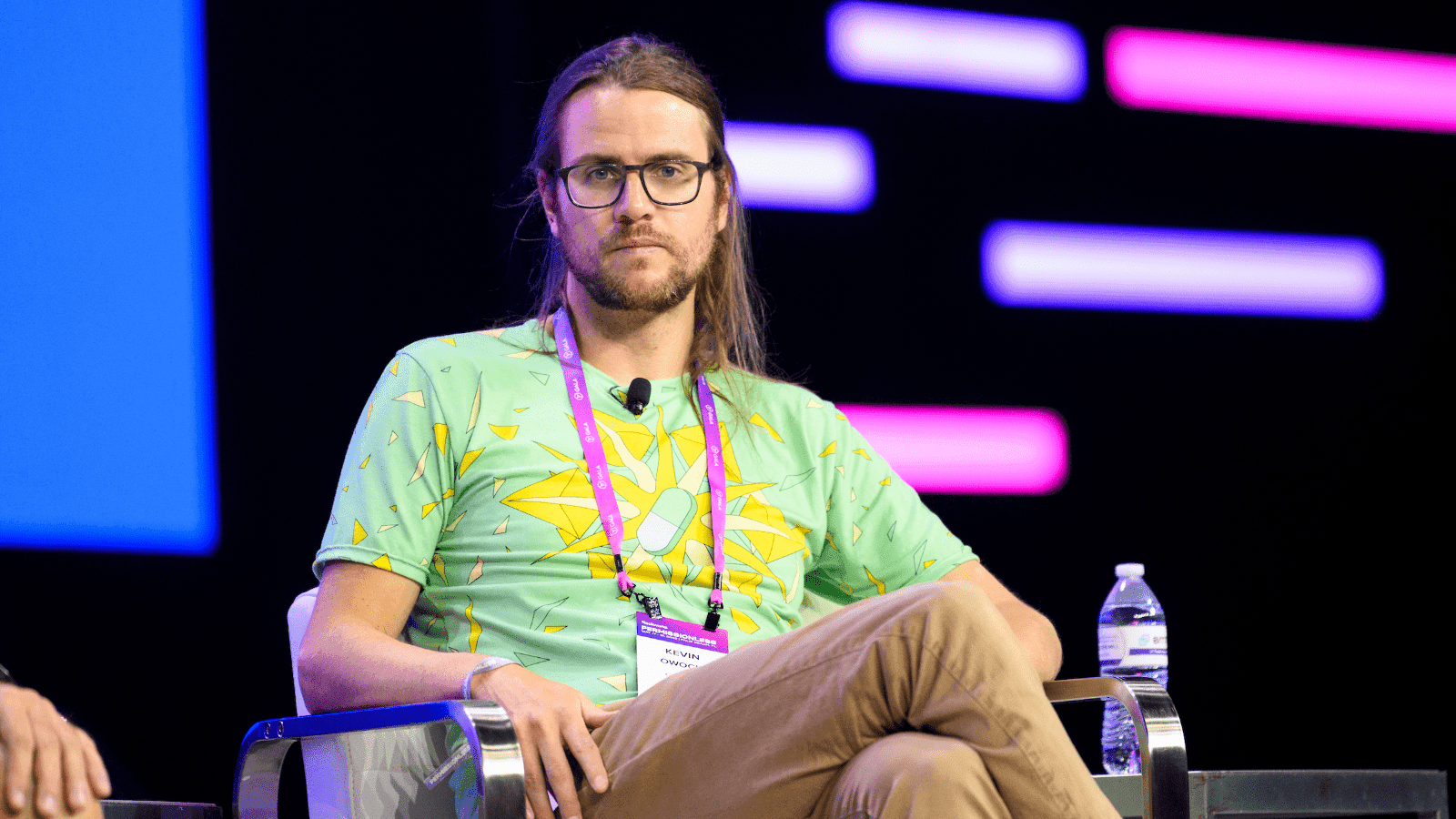Gitcoin Passport To Make Fundraising, Governance More Fair
DAOs should be more democratic, less plutocratic, says Gitcoin co-founder

Gitcoin co-founder Kevin Owocki | Photo by Mike Lawrence
- Most DAOs today use a one-token-one-vote model
- Decentralized identification has wide-ranging use-cases from DeFi to NFTs and the future of work
A new tool from Gitcoin, an organization dedicated to raising money for public goods, aims to help other organizations raise money and make decisions more democratically.
Groups such as Rabbithole and POAP are potential beneficiaries, but also large DAOs.
If you think of a DAO (decentralized autonomous organization) as an exercise in collective decision-making — enabling large numbers of individual stakeholders to align their interests through voting — one problem stands out: Most DAO governance systems use a token-voting model, where each token represents a vote.
But according to Kevin Owocki, founder of Gitcoin, “one-token-one-vote systems are inherently more plutocratic” than democratic.
The major holders, whales and venture capitalist firms can — and often do — dominate the rest of the community.
A natural alternative — for each person to count for one vote — is notoriously hard to pull off in an environment where stakeholders are typically pseudonymous and globally distributed — in other words, most DAOs. That’s where Gitcoin Passport comes in. It’s the first phase of a multi-quarter rollout of what Owocki calls Gitcoin Grants 2.0.
Gitcoin pioneered the use of a recent invention in the fundraising space known as quadratic funding. Alongside quadratic voting, the concept was introduced by researchers at the Institute for Advanced Study, a research arm of Princeton University, in 2015.
Quadratic funding allows a pool of matching funds to be automatically directed by the collective voting preferences of a large number of small contributors.
“That’s powerful because it pushes power to the edges — you’re funding what the everyday democratic people in the ecosystem want to fund,” Owocki told Blockworks.
For instance, say two projects are vying for donations with a matching pool of $1,000, one of which raises $50 from one person, while the other raises $10 from five folks. Both raised the same amount of money, but the one with five times the number of supporters will receive five times the matching pool’s funds on top ($833.33 versus $166.66).
Gitcoin has applied this fundraising model to its own quarterly grant rounds — now numbering 14 and distributing millions of dollars from thousands of donors.
But to be effective, the project must ensure that large contributions from a single person or entity can’t be split up into many smaller chunks, giving the false impression of widespread support. Preventing the system from being gamed in this way is known as Sybil resistance.
Passport will help Gitcoin keep its grants flowing fairly, but DAOs can also use it to improve governance.
“Sybil resistance is one of the key things to take us from one-token-one-vote to one-human-one-vote,” Owocki said.
“A DAO would instantly be more democratic if it had quadratic voting instead of one-to-one token voting. That’s where I’m interested in seeing DAOs evolve.”
Gitcoin isn’t the only project trying to solve decentralized identification (DID), but it does have a leg-up on the so-called “cold start” problem, Owocki said.
“What everyone else is missing is usage.” Today there are few if any dApps using DID, thus few users care about having an effective DID system, and decentralized apps have no incentive to prioritize it.
This problem is not unique to DID, Jonathan Howle, co-founder of Disco, told Blockworks via email.
“No merchants accept crypto, so nobody wants crypto, etc. The first step in the process, regardless, is to build the tools necessary for adoption to occur,” Howle said.
But the long-term potential is there, he said.
“Decentralized ID has the ability to unlock coordination and bridge the trust gaps that exist right now in Web3: Undercollateralized loans in DeFi, verifiable authorship and [intellectual property] rights management in NFTs, and the future of resumes, transcripts, job applications, peer references,” or what he terms “the future of work,” all stand to benefit.
“Nobody really knows what could drive mass adoption but I think there is a good chance it could be that,” Howle said.
Get the news in your inbox. Explore Blockworks newsletters:
- The Breakdown: Decoding crypto and the markets. Daily.
- 0xResearch: Alpha in your inbox. Think like an analyst.






